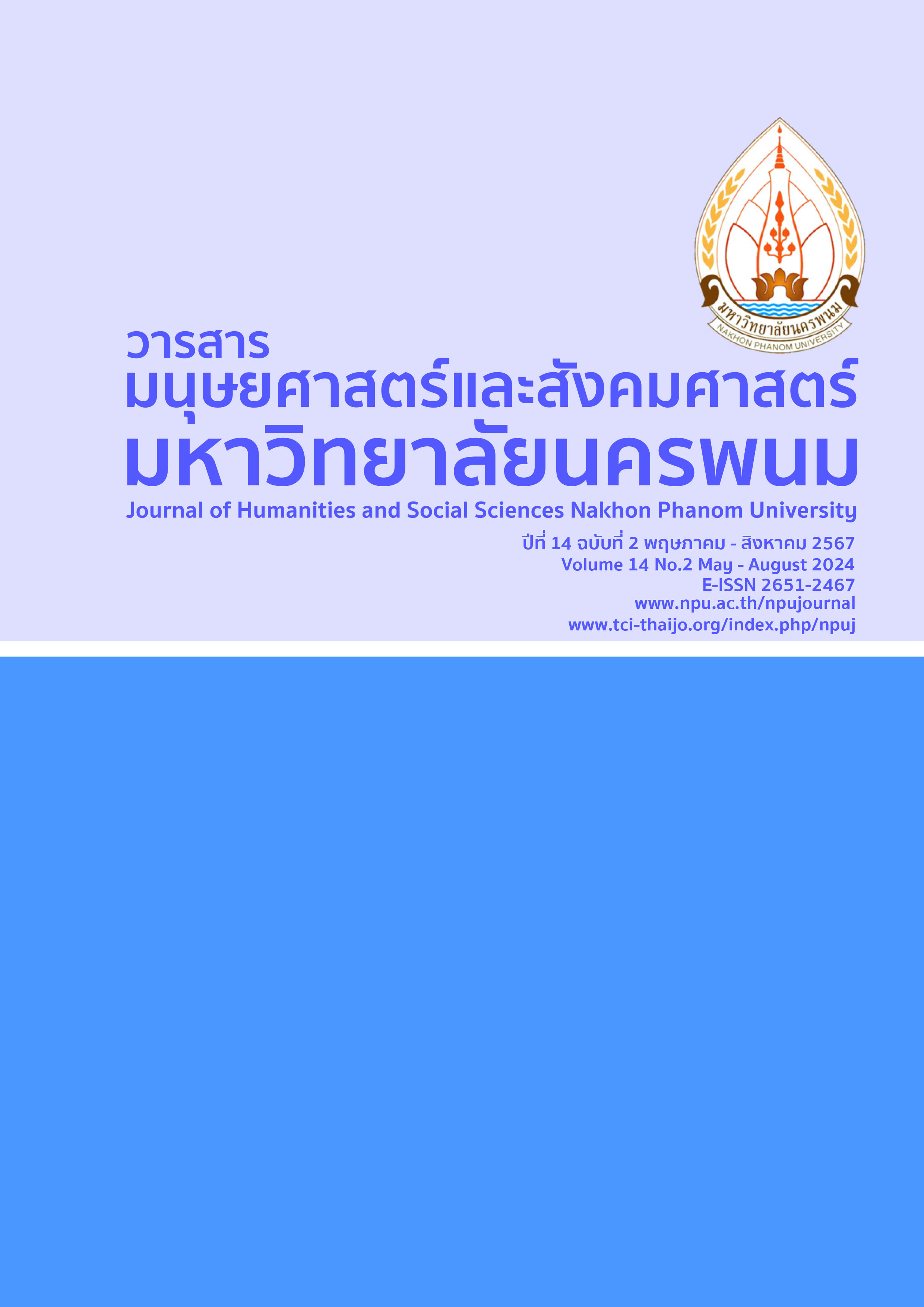The Development of Talent Management Strategies to Create Competitive Advantage in Electrical and Electronic Industry of Chachoengsao Province
Main Article Content
Abstract
The purpose of this research was to study the situation and analyze the development of talent management strategies to develop a talent management strategy model and to evaluate talent management strategies to create competitive advantages of the electrical and electronics industries in Chachoengsao Province. This research was mixed-methods research: qualitative and quantitative research. The qualitative research used 20 key informants using purposive selection. The tools used for data collection consisted of a semi-structured interview form., The data collection methods include in-depth interviews. In the quantitative research, the population and sample were 378 employees that related to talent management at the department head level and higher. The tool used was a questionnaire, and the data was analyzed using averages and standard deviations. The results found that 1) the situation of talent management in the electrical and electronics industries in Chachoengsao Province revealed that most organizations emphasize developing talented people, retaining talented people, identifying talented people, and giving awards respectively. The external environment that affects the talent management process includes competition and changes in production technology, economic conditions, and government policies. The internal environment that affects the talent management process includes communication, the working atmosphere and the commander. The problems and obstacles include supervisors' management skills, determination of compensation, and employees lack encouragement to take initiative and create new things. 2) The developing a strategic model for talent management, consisting of the vision, mission, and strategy, includes 1. an integrated people search strategy, 2. a strategy for developing the capabilities of talented people, 3) a reward strategy, and 4. a strategy for creating a culture of promotion and retaining talented people and good people. 3) The evaluation of talent management strategies according to the opinions of experts found that the evaluation result was at its highest both overall and for each item. The strategy created is appropriate and there is the possibility to use it as a practice.
Article Details

This work is licensed under a Creative Commons Attribution-NonCommercial-NoDerivatives 4.0 International License.
References
Barney, J. (1991). Firm resources and sustained competitive advantage. Journal of Management. 17(1),99-120.
Boonchuwong, D., Sirawaritsara, A., Holumyong, T. & Yodsurang, S. (2023). Human Resource Management through Organizational Diagnosis Model in Eastern Industry. Journal of Academic for Public and Private Management, 5(1),98-112. http://doi.org/10.14456/jappm.2023.7
Chukawat, N. & Ployduangrat, J. (2021). Human Resource Management Towards Talent Management: Process driven private schools in the age of disruptive world. Journal of Association of Professional Development of Educational Administration of Educational Administration, 3(3),29-44.
Cronbach, L. J. (1990). Essentials of psychological testing. (5th ed). New York : Harper & Row. 202-204.
Department of Industrial Works. (2022). Information Service. Retrieved September 2023, from https://www. diw.go.th/webdiw/s-data.
Electrical & Electronics Institute. (2020). Eastern Economic Corridor: EEC. Retrieved September 2023, from http://eiu.thaieei.com/box/Research/38/EECver12-18.pdf.
Fiedler, F. E. (1967). A theory of leadership effectiveness. New York : McGraw-Hill.
Gubman, E. L. (1998). The Talent Solution: Aligning Strategy and People to Achieve Extraordinary Results. United States : The McGraw-Hill Companies.
Intharakoed, M. (2020). The strategic talent management of listed company in security exchange of Thailand. Retrieved September 2023, from http://ithesis-ir.su.ac.th/dspace/bitstream/123456789 /3432/1/58604803.pdf
Krejcie, R. V. & Morgan, D. W. (1970). Determining Sample Size for Research Activities. Educational and Psychological Measurement. 30(3),607-610.
Michaels, E., Helen Handfield-Jones, H. & Beth Axelrod, B. (2001). The War for Talent. Boston USA : Harvard Business Press.
Nantharojphong, K., Jadesadalug, V. and Sansook, J. (2020). Dynamic Talent Management Capabilities: Causal and Effect. Journal of Business, Economics and Communications. 15(1),150-173.
Office of the Policy Committee Eastern Economic Corridor. (2019). Executive summary report Overall plan for the development of the Eastern Economic Corridor 2017- 2022. Retrieved August 2022, from https://www.eeco.or.th/th/filedownload/1478/ cf4092afd2456bb1f03995574db27a75.pdf
Patanasamphan, A. (2020). Talent Management of Thai Employees in Japanese Company at Amata nakorn Industrial Estate Chonburi. Journal of Rangsit Graduate Studies in Business and Social Sciences, 6(1),81-95. http://doi.org/10.14456/jrgbsrangsit .2020.6
Penrose, E. T. (2009). The Theory of the Growth of the Firm. (4th ed). Oxford University Press.
Rodruangdej, P., Sanamthong, E., Suwathunphornku, I. & Chancharoen, D. (2021). The development of talent management strategy for private sector organization in thailand: an application of research synthesis and user experience research. Journal of Law, Public Administration and Social Science, School of Law Chiang Rai Rajabhat University, 5(1),173-193.
Sissani, M. and Narsjes F (2023). An overview of talent management: Make talent management a priority in start-ups. Business & amp; Management Studies: An International Journal, 11(4),1275-1284. http: //doi.org/10.15295/bmij.v11i4.2298
Sritulanon, S., Thammaruk. D. & Phoengurn. T, (2021). Management of Talent Employee in Automotive Lighting Manufacturing Industry in Pathum thani Province. Journal of Nakhonratchasima College (Humanities and Social Sciences), 15(3),217-231.
Tailanhgkha, W. & Choocheep, B. (2021). Talent Management Guidelines of Thai local Goverment. Journal Public Administration Association of Thailand, 3(6),59-72.
Tummaupakorn, N., Jadesadalug, V. and Sansook, J. (2019). Strategic Talent Management: Empirical Evident of Energy Business in Thailand. Journal of Humanities and Social Sciences, Rajapruk University. 5(1),61-77.
Wheelen, T. L. & Hunger, J. D. (2006). Strategic Management and Business Policy. (10th ed). New Jersey : Pearson Prentice Hall.


